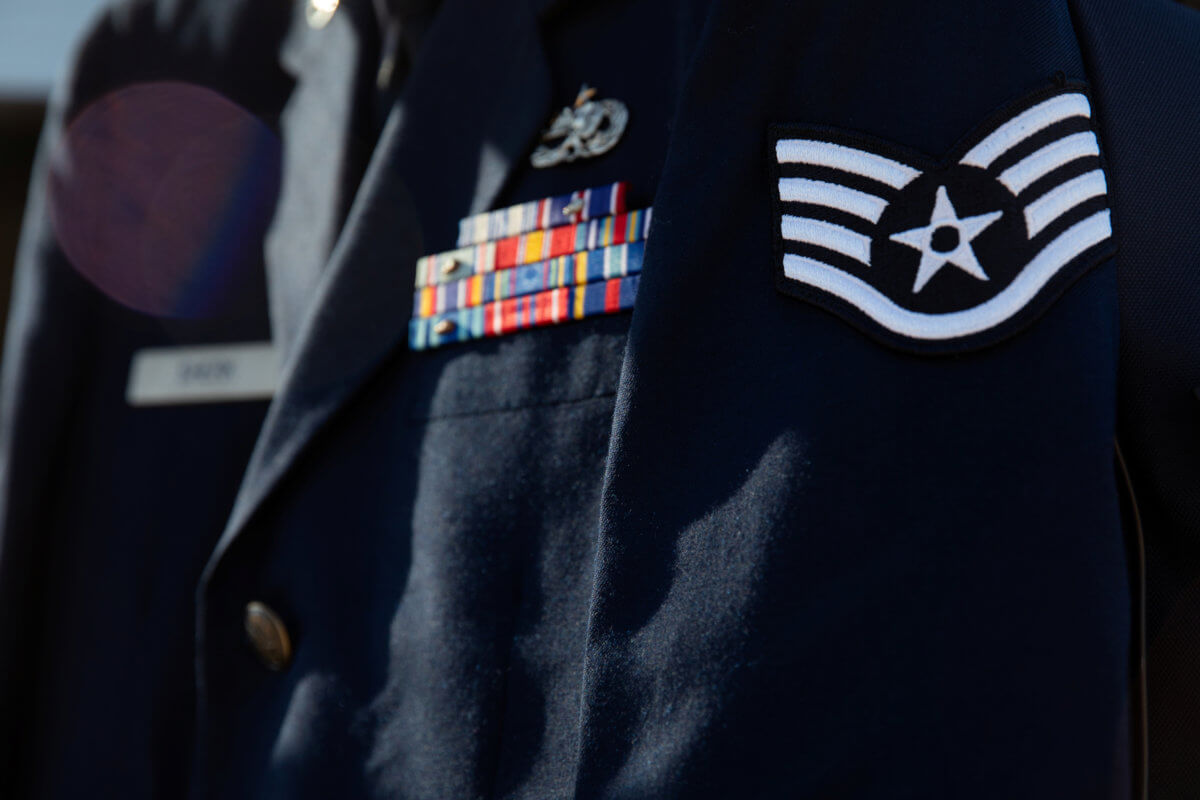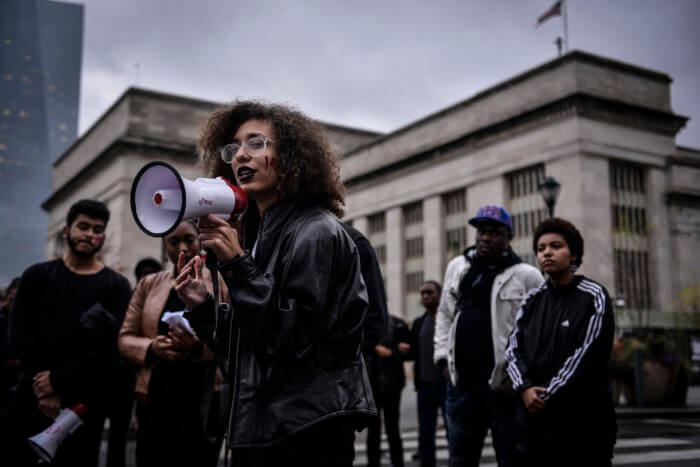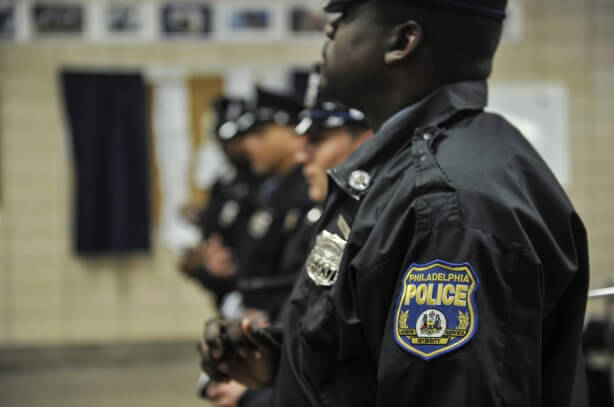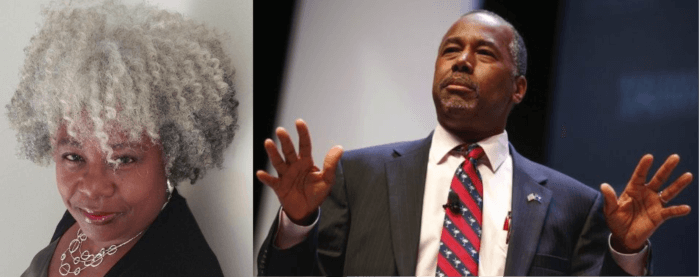By the time he saw a swastika scrawled in the bathroom at Barksdale Air Force base in October 2018, Deven Sherk was already disillusioned with how the Air Force handled racism complaints. The Black airman had filed a complaint alleging discrimination that June when a fellow airman, a white man, hung a noose near him on the base.
“I felt that was a direct threat to my life,” said Sherk, who was a staff sergeant specializing in B-52 bomber maintenance at the time.
Along with the noose, he reported seeing a whip on display at the hangar where he worked, with slogans including “Fuckin Attitude Adjuster” written in marker. Sherk says he never felt the Air Force’s Equal Opportunity office took seriously his complaints of racism. So, he decided against filing a formal complaint about the swastika.
By February of 2019, the Air Force said it quietly censured several people over Sherk’s complaint, but the sergeant’s career was over. He says he found himself pushed out of the service with an honorable discharge after suffering depression and anxiety.
“Incidents like these must stop,” an Air Force spokeswoman said of Sherk’s case. “We are committed to ensuring our Air Force is a place of respect, diversity and inclusion.”
As America confronts the question of systemic racial injustice, the U.S. military, which has long promoted itself as an egalitarian system focused on merit and achievement, is undergoing its own moment of reckoning.
Earlier this summer, as the military braced for a deployment amid nationwide protests over police violence against Black Americans, top defense officials acknowledged a lack of diversity among leadership. The Air Force’s newly appointed first Black chief of staff supported these concerns when he shared his own stories of bias during his climb to the top. The Army is grappling with calls to rechristen bases named for Confederate generals. And the Pentagon has launched an initiative to “ensure equal opportunity across all ranks.”
But interviews with dozens of current and former U.S. service members reveal deep skepticism about whether coming forward with concrete allegations of discrimination will be beneficial. Especially daunting, they say, is using the complaint process specifically set up to address concerns from members of the Armed Forces.
So-called Equal Opportunity offices are located on U.S. military bases around the world, established to give troops access to some of the protections against discrimination that American civilians can tap through a separate system, U.S. Equal Employment Opportunity. Troops, who are not considered employees, have the right to seek investigations through EO offices.
But many service members, including Sherk, say the EO process is often a dead end, resulting in little action, or worse, backfiring on the complainant. That’s because filing an EO complaint is often viewed as an act of defiance in the military, they say.
Data obtained by Reuters show that service members rarely file formal EO complaints when compared to their civilian employee counterparts within the Defense Department. The Army, Navy, Air Force and Marines employ some 1.3 million active duty personnel, about double the civilian workforce. But civilians file far more complaints than troops.
The vast gap between uniformed military complaints and those of their civilian counterparts in the Army, Navy and Air Force has not been previously reported. Few troops’ complaints were substantiated in 2019: 6% in the Navy and 18% and 35%, respectively, in the Air Force and Army. Reuters does not have sufficient data to compare those rates to outcomes of civilian complaints.
“There is a career downside risk to coming forward and rocking the boat,” said Rep. Jackie Speier, a California Democrat who leads the Military Personnel panel on the House Armed Services Committee.
































